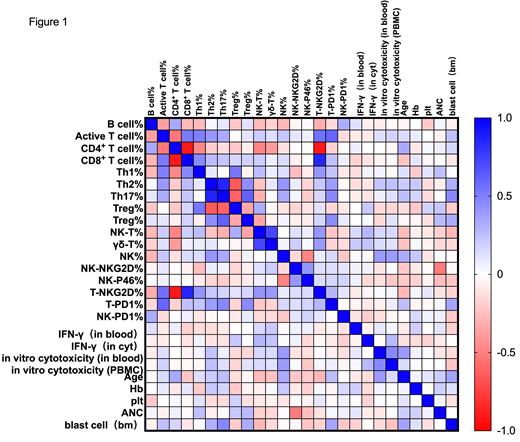Background: The pathogenesis of myelodysplastic syndrome (MDS) is mainly driven by specific genetic lesions involving stem cell compartments. But recent studies have found that MDS also appears to be related to immune mechanisms. There is still no consensus on which immune pathway is involved. As a result, we investigated the potential implications of various immune cell subpopulations on hematopoietic abnormalities disease occurrence and development.
Methods: 69 MDS patients in our hospital and 31 normal controls are involved. Clinical data were collected and immune-related indicators were detected through blood routine testing, flow cytometry, ELISA, and other testing methods. Then we analyzed the differences between immune groups in patients and normal individuals, as well as the correlation between the immune group and clinical symptoms.
Results: In lymphocytes, the activated T cell population was significantly increased in patients with MDS (p<0.01), with CD4 + T cell being the most significantly elevated (p<0.01). In atypical T cell subtypes, NK-T was the most significantly reduced (p<0.01). Among immune cell receptors, the NK-P46 was significantly increased (p<0.01). And there was a significant decrease in immune cell activity experiments (p<0.01). In the correlation study, we found a negative correlation between neutrophils and NK-NKG2D cells (r=-0.52, p<0.01), and a positive correlation between bone marrow progenitor cells and Th17 (r=0.47, p<0.05). (figure 1)
Conclusion: It has been confirmed that the immune mechanism has indeed had an impact on MDS. We found a significant increase in the T cell population but a decrease in immune cell function in patients with MDS. Indicating a new direction for studying immune mechanisms in MDS patients.
Disclosures
No relevant conflicts of interest to declare.


This feature is available to Subscribers Only
Sign In or Create an Account Close Modal